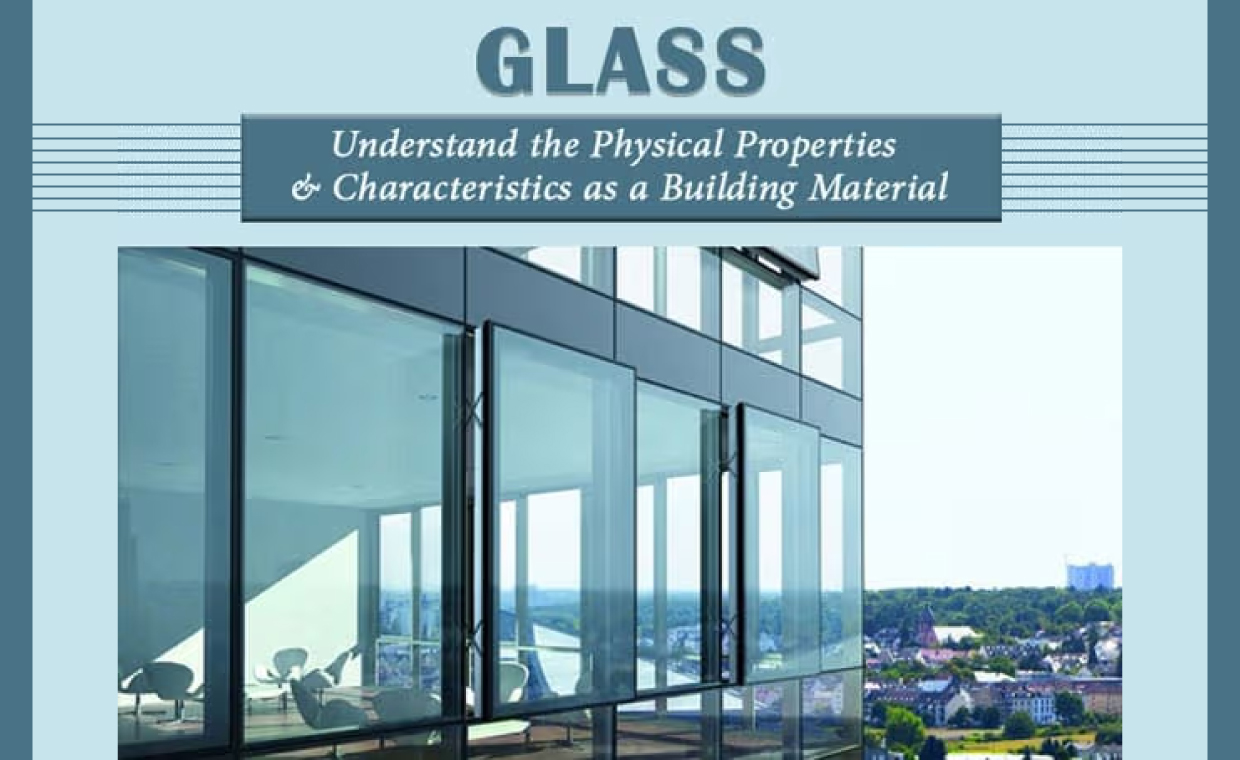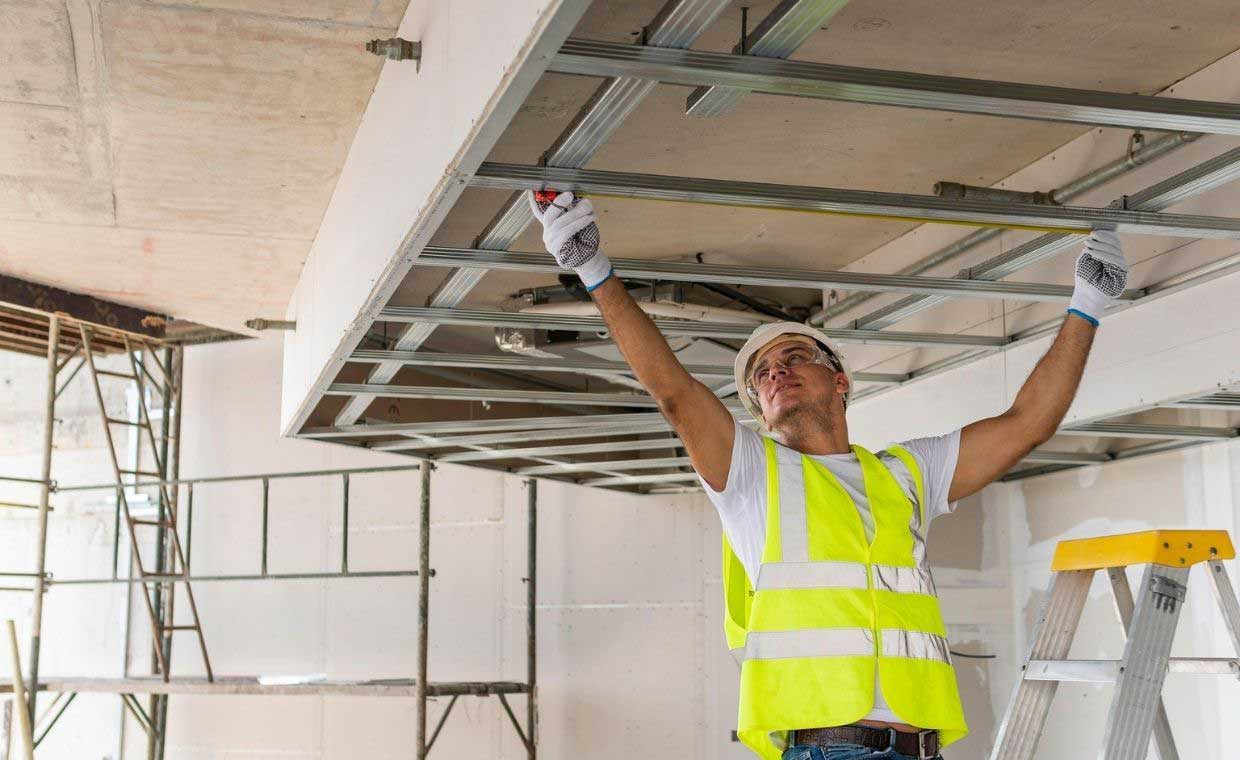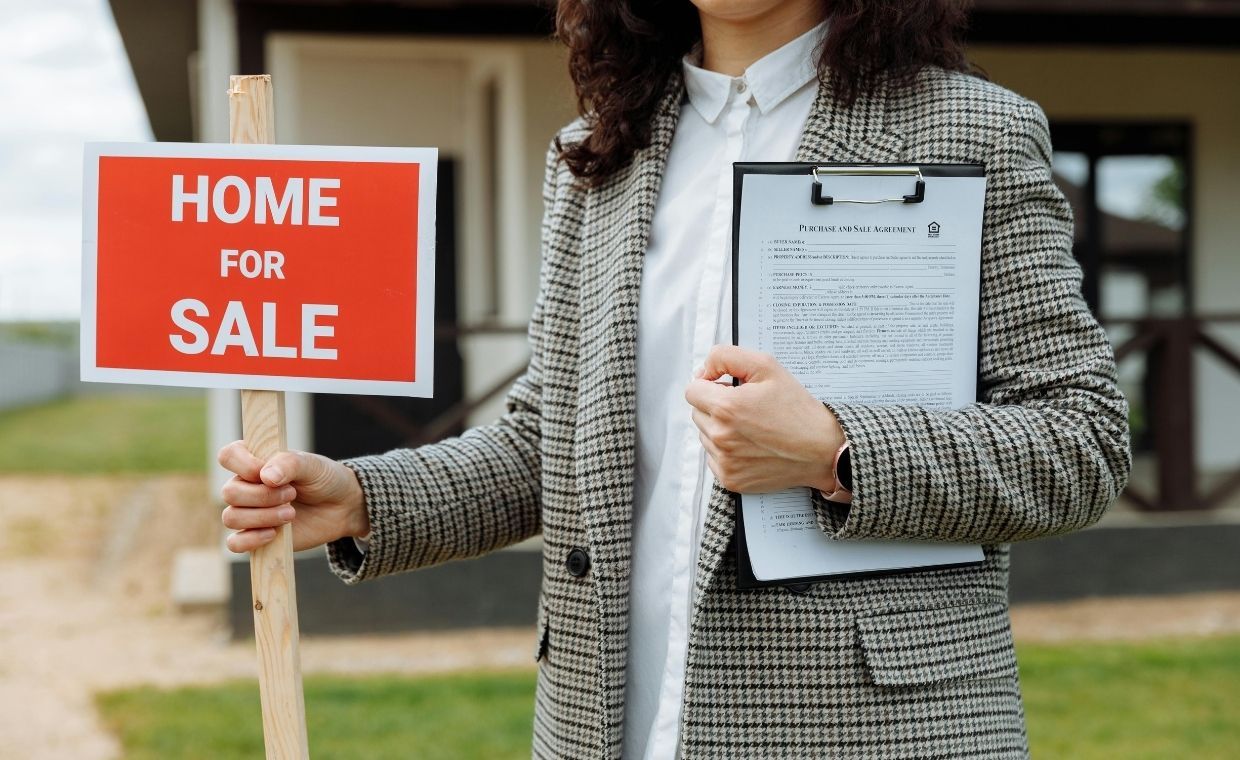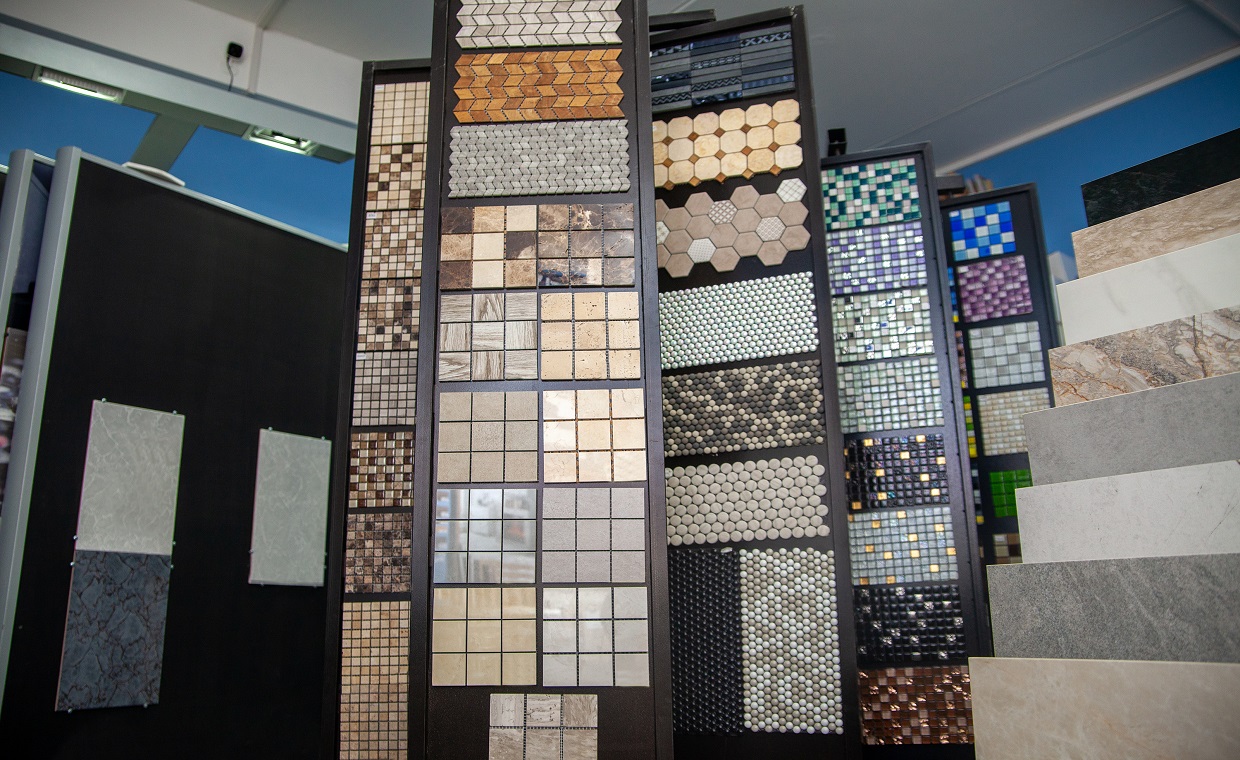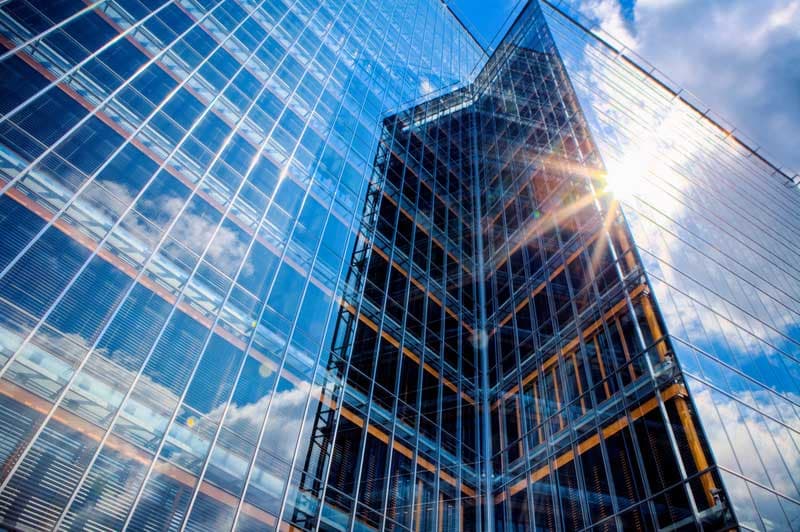
As concrete structures are increasing the emission of CO2 gas in the atmosphere, people are now shifting more towards steel framed structures. Due to its durability and sustainability, glass is commonly used in glass facades of steel framed structures. Glass is responsible for transferring 80% of the solar heat into the structure.
However, in countries like India which have the temperature of 35 to 40 0C, the cost of air conditioning the structure increases. For commercial buildings and business centres, this is a major disadvantage, as electricity bills increase. Different types of high performance glass are now available in the market to improve energy utilization and decrease the operating cost of a structure. Solar control glass is one type of high performance glass which cuts up to 60% of solar heat entering the room. Here we have given brief information on solar control glass, its types and pros and cons, which homeowners should know before buying glass for their house.
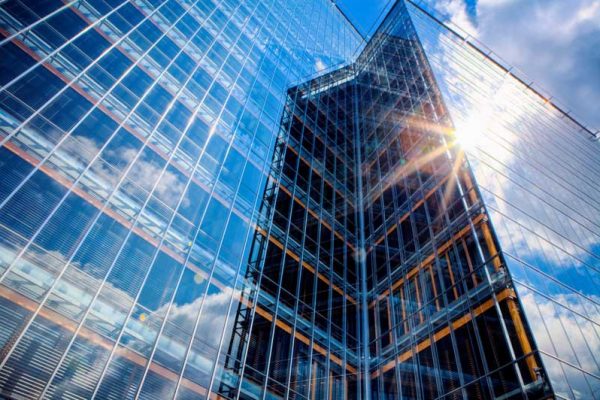
Courtesy – Romag
Solar control glass is a special oxide coated glass which allows less amount of heat to pass through it as compared to normal glass i.e. float glass. The amount of light entering the room is not affected due to solar control coating. The indoors remain bright and cooler, even in hot climate. It also reduces the glare of the natural light and creates a comfortable environment for the room.
The cost of artificial lights is also reduced as, during the daytime, light entering the room is not blocked. For tropical countries like India, this type of glass is very suitable in facades, as it helps in reducing the amount of air-conditioning required. Solar control has many applications in construction industry. It is used as double glazed units in glass facades of commercial buildings, business centres, industrial centres, shopping malls, cinema, etc. Solar control glass can be used as laminated glass, toughened glass, tinted glass, etc.
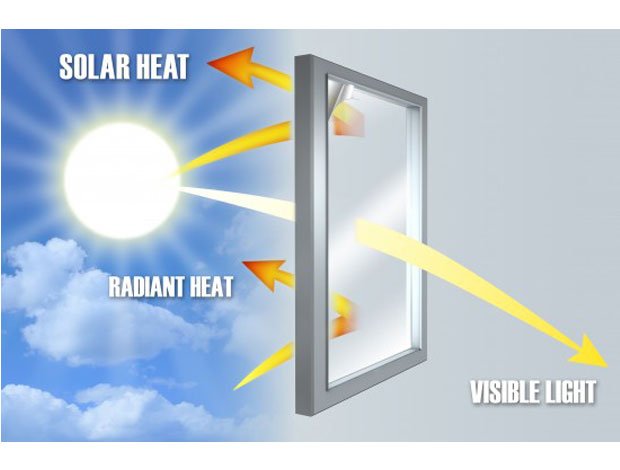
Courtesy – Antglass
There are two types of solar control glass based on the method of coating the glass; Hard-coated and Soft-coated.
Hard – Coated Solar Control Glass:
Hard coating also referred to as on-line coating is done during the manufacturing process of glass. The coating is applied when the glass is in the molten state and is on the float-line, where it is gradually cooled. As the coating is applied when the glass is in the molten state, the coating fuses very tightly to the glass.
Soft – Coated Solar Control Glass:
Soft coating also referred to as off-line coating is done after the glass is manufactured. The coating is applied in vacuum chambers at room temperature. Soft coated solar control glass has low resistance to scratches, so it is mostly used in the second layer of insulated glass units of glass facades.
The pros and cons of solar control glass are as follows:
Pros/Advantages:
- As compared to float glass, solar control glass reduces heat gained and glare of light entering the room and provides a comfortable environment for living.
- As heat gained in the room is less, the cost of electricity is reduced and thus energy conservation is done. Due to this property, solar control glass is used in sustainable structures.
- They allow visible light to pass through them, so the usage of artificial lights is also optimized.
- Tinted glasses with solar control coating are also available, which can be used to create an astonishing look of a structure.
- The exterior of the solar control glass can be made reflective, which provides privacy to the interiors. The reflective solar control glass is commonly used as glass facades for business centres.
- It can be easily used in the form of tempered glass, laminated glass, heat strengthened glass, and insulated glass units.
Cons/Disadvantages:
- The major disadvantage of solar control glass is its cost. It is expensive as compared to normal glass.
- Solar control glass absorbs some amount of heat, which may lead to overheating of glass.
- In areas, which experience cool climate most of the time in a year, it is not a good option, as the essential solar heat will be reduced, there will more need of heating the room, which may lead to increase in electricity bills. Thus it is not an economical option in a colder climate.
Owning to its advantages, solar control glass is popularly used as glass facades in countries which experience hot climate. Tropical countries like India, Pakistan, Sri Lanka, Myanmar, Singapore, Bangladesh, Malaysia, etc use solar control glass in facades of commercial as well as industrial structures, to create a comfortable environment for working. The initial cost of installing solar control glass is high, but in the long run, it will be more economical as compared to normal float glass.
Also Read:
History of Glass & Its Invention for Window
Frosted Glass: Basic Features You Should Know Before Using It
Raw Materials Used in Glass Manufacturing Process
Advantages & Disadvantages of Glass as a Building Material




